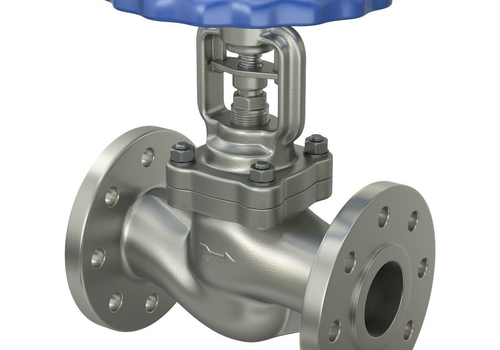Use and Advantage of Different Types of Valves
Valves are essential components in various industries, controlling the flow of liquids, gases, and slurries in pipelines and systems. They come in different types, each suited for specific applications. Here’s a simple guide to the most common types of valves, their advantages, and disadvantages, with a focus on leading manufacturers like Mcneil Instrument.
1. Gate Valves
Use: Gate valves are used to start or stop the flow of fluid. They are ideal for applications where the valve needs to be fully open or fully closed.
Advantages:
- Low Pressure Drop: When fully open, gate valves offer minimal resistance to flow.
- Durability: Suitable for high-pressure and high-temperature applications.
- Simple Design: Easy to maintain and repair.
Disadvantages:
- Slow Operation: Opening and closing can be slow compared to other valves.
- Poor Throttling: Not ideal for regulating flow; more suited for on/off control.
- Space Requirement: Requires more space to operate fully.
Mcneil Instrument, one of the prominent industrial valves manufacturers in Mumbai, provides high-quality gate valves that meet stringent industrial standards.
2. Globe Valves
Use: Globe valves are used for regulating flow and pressure. They are commonly used in applications where precise flow control is required.
Advantages:
- Accurate Flow Control: Provides better throttling and regulation.
- Sealed Design: Less likely to leak compared to gate valves.
- Versatile: Suitable for various fluids and pressure ranges.
Disadvantages:
- Higher Pressure Drop: Flow resistance can be higher due to the design.
- Maintenance: More complex design can lead to higher maintenance needs.
- Cost: Generally more expensive than gate valves.
As a leading name among valves manufacturers in India, Mcneil Instrument offers a range of globe valves designed for precise and reliable flow control.
3. Ball Valves
Use: Ball valves are used for quick shut-off and reliable sealing. They are often found in applications where a fast on/off control is needed.
Advantages:
- Quick Operation: Opens or closes with a 90-degree turn of the handle.
- Reliable Sealing: Provides a tight seal with minimal leakage.
- Durable: Ideal for high-pressure and high-temperature systems.
Disadvantages:
- Not Ideal for Throttling: Generally not suitable for flow regulation.
- Size Limitations: Large sizes can be bulky and expensive.
- Wear and Tear: Ball seats can wear out over time, affecting performance.
Mcneil Instrument stands out as one of the best valves manufacturers in Mumbai, known for its robust and reliable ball valves.
4. Butterfly Valves
Use: Butterfly valves are used for flow control and isolation in large pipes. They are popular in applications like HVAC systems and water treatment.
Advantages:
- Compact Design: Requires less space compared to other valves.
- Lightweight: Easier to install and maintain.
- Quick Operation: Opens and closes quickly with minimal effort.
Disadvantages:
- Limited Throttling Capability: Not as precise for flow regulation.
- Potential Leakage: May not provide as tight a seal as other valves.
- Pressure Drop: Can cause a significant pressure drop depending on the design.
Mcneil Instrument is recognized among the industrial valves manufacturers in India for its efficient and space-saving butterfly valves.
5. Check Valves
Use: Check valves prevent backflow in a system. They are essential in preventing damage to pumps and other equipment.
Advantages:
- Prevents Backflow: Ensures fluid flows in one direction only.
- Automatic Operation: No need for external control mechanisms.
- Protects Equipment: Helps prevent reverse flow that could damage systems.
Disadvantages:
- Limited Flow Control: Only allows flow in one direction; no throttling.
- Maintenance: Can require maintenance if they become clogged or stuck.
- Potential for Water Hammer: Can cause water hammer if not properly designed.
As a leading instrumentation valves manufacturer in Mumbai, Mcneil Instrument provides reliable check valves that safeguard your equipment.
6. Pressure Relief Valves
Use: Pressure relief valves are used to control or limit the pressure in a system. They automatically release pressure to protect against overpressure.
Advantages:
- Safety: Protects equipment from excessive pressure.
- Automatic Operation: Releases pressure without manual intervention.
- Reliable: Ensures system safety by preventing overpressure situations.
Disadvantages:
- Requires Regular Testing: Needs periodic inspection to ensure proper functioning.
- Potential for Leakage: Can develop leaks if not properly maintained.
- Initial Cost: Can be expensive to install compared to other valves.
Mcneil Instrument, renowned among the best valves manufacturers in India, offers high-quality pressure relief valves for critical applications.
7. Diaphragm Valves
Use: Diaphragm valves are used in applications that require a tight seal and minimal leakage, such as in the pharmaceutical and food industries.
Advantages:
- Clean Operation: Minimizes the risk of contamination.
- Good Sealing: Provides a tight seal against leakage.
- Easy Maintenance: Simplifies cleaning and replacement of components.
Disadvantages:
- Limited Pressure and Temperature Range: Not suitable for all pressure and temperature ranges.
- Wear on Diaphragm: The diaphragm can wear out over time and require replacement.
- Higher Cost: Can be more expensive than other valve types.
Mcneil Instrument excels as a top valves manufacturer in Mumbai, offering diaphragm valves that meet the highest standards of hygiene and performance.
Choosing the right valve for your application is crucial for system efficiency and safety. Understanding the specific uses, advantages, and disadvantages of different types of valves helps in making informed decisions. Whether you need precise flow control, reliable sealing, or protection from backflow, Mcneil Instrument stands out as one of the leading industrial valves manufacturers in Mumbai and best valves manufacturers in India. Their range of high-quality valves is designed to meet the needs of diverse industrial applications..







